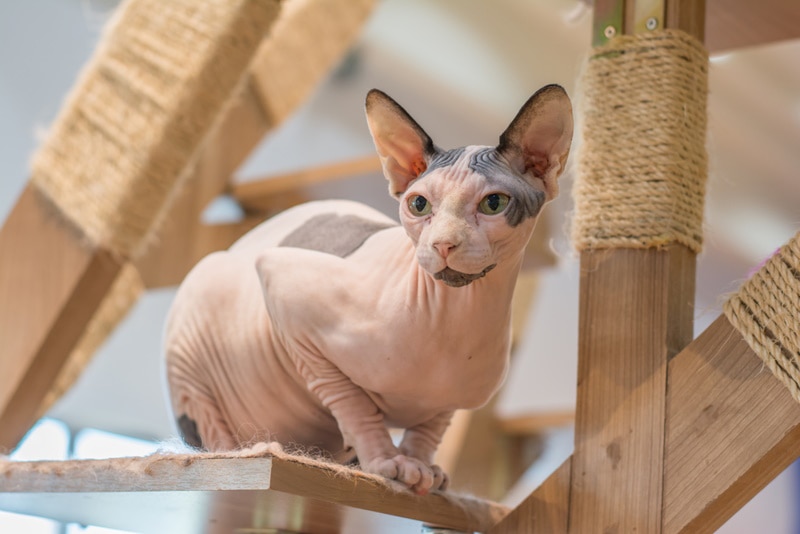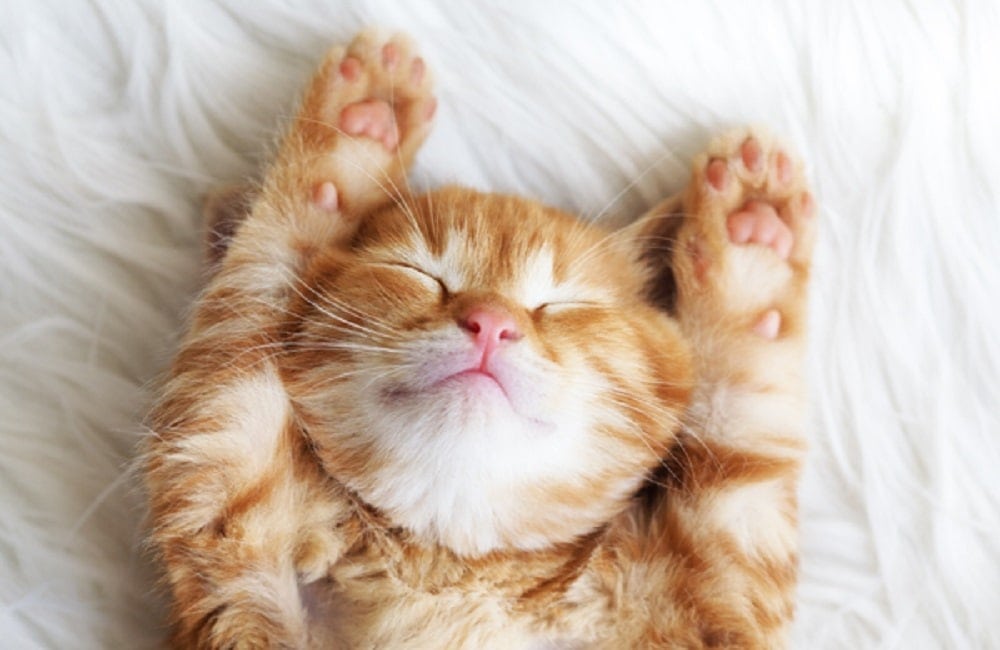Why Is My Cat Acting Weird? 10 Vet Reviewed Warning Signs
Updated on

People who don’t own a cat or simply don’t know anything about felines might say that these creatures behave strangely all the time. But you are a true cat lover and know all the tricks of your pet. So, your definition of your cat’s “weird behavior” may be different than that of another cat owner.
Here, we explore common strange cat behaviors and what they could mean. If you think that your cat is in real pain or distress or are otherwise concerned about their erratic behavior, please consult your veterinarian promptly.
My Cat Is Acting Weird: 10 Warning Signs
1. Hiding
If your cat constantly hides in their favorite spot, it’s probably not because they want to play “hide and seek” with you. This behavior often signals an underlying issue, such as fear, stress, pain, or illness. However, identifying the exact cause can be tricky without additional signs, so be vigilant about monitoring your cat’s overall behavior. And don’t hesitate to reach out to your vet for additional thoughts.
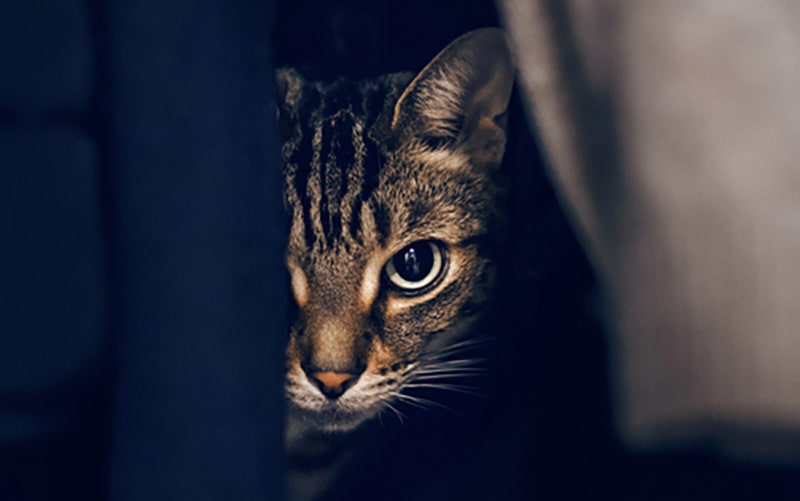
2. Mood Swings
Mood swings aren’t just for humans. Cats can be grumpy some days too. But increased aggression (your cat starts hissing or biting you for no apparent reason) or excessive crankiness are not normal. These sudden mood changes may be attributed to pain or underlying illnesses, such as:
- Hyperthyroidism
- Hypertension
- Pain
- Brain tumors
- Rabies
3. Overgrooming
Stress, anxiety, or even pain can cause your cat to behave strangely, in this case, overgrooming themselves. Or conversely, your cat has stopped maintaining their beautiful coat. Either can be a sign of a more serious underlying problem.
For example, a cat that suffers from anxiety may begin to lick themselves excessively, which can lead to hair loss in certain areas of their body. A cat with arthritis or a leg injury may stop grooming themselves due to acute pain. Sudden hair loss can also be caused by parasites, bacterial or fungal infections, or allergies.
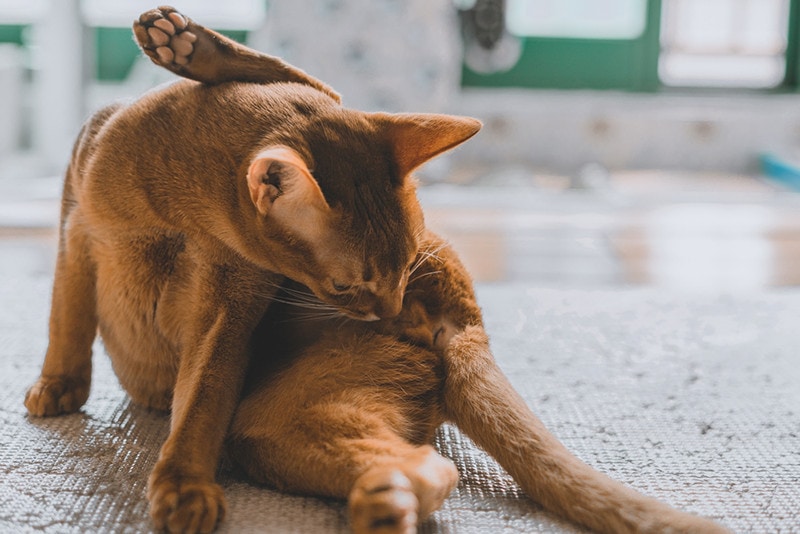
4. Constant Meowing
If your cat is usually calm and quiet, a sudden increase in their meows is often a sign that something is wrong. However, it depends on what is typical of their vocal behavior. It can be something benign, like your cat is in heat, but it can also signal pain, distress, or desire of some sort. However, if you have no idea what your cat is trying to communicate to you and their meows are becoming increasingly intense, it’s best to contact your veterinarian.
5. Not Using the Litter Box
Occasional small messes outside your cat’s litter box are not necessarily alarming. It could be because their litter box isn’t clean enough for them, or there aren’t enough litter boxes for all the cats in your home.
However, if your cat is suddenly unable to urinate, this could indicate a urethral obstruction, which constitutes a medical emergency.
Cats may also do their business outside their litter box if they associate it with pain, which may be caused by health issues like bladder infections, urinary crystals or stones, gastrointestinal issues, or joint pain. Speak to your vet, if you see this happening.
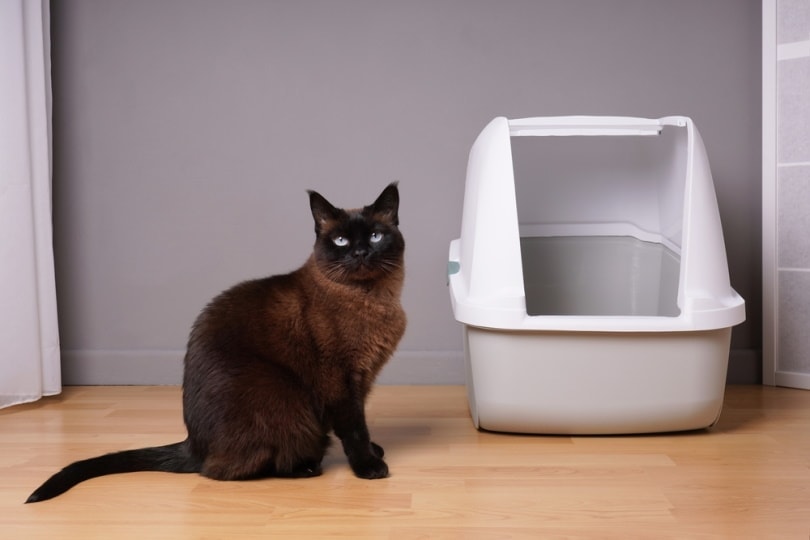
6. Sleeping All Day Long
Although cats are known for their love of naps, if your feline friend starts sleeping excessively (you know, beyond their usual 16 hours), it could be a sign that something is off. Changes in energy levels can sometimes be subtle indicators of underlying health issues.
For example, hyperthyroid cats tend to be more active, while cats that sleep all the time may be in pain. These energy changes can occur suddenly or gradually worsen over time, so it is difficult to identify the cause without your veterinarian first examining your cat.
7. Changes in Appetite
Changes in your cat’s eating habits can indicate that something might be wrong with your pet. In fact, one of the first signs of a sick cat is a shift in their appetite.
On the one hand, an increased appetite can be caused by intestinal parasites, hyperthyroidism, diabetes, or gastrointestinal disease affecting nutrient absorption. On the other hand, a loss of appetite may be due to nausea, fever, food aversion, gastrointestinal problems, or pain in the mouth.
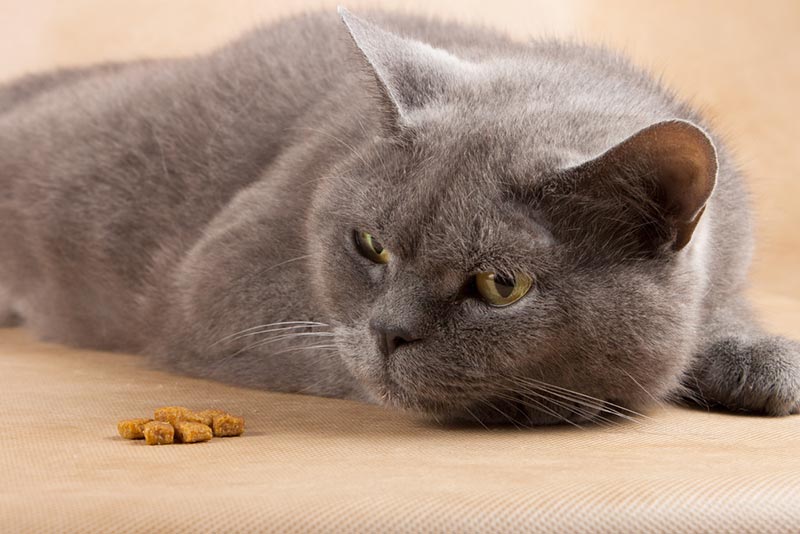
8. Unquenchable Thirst
In general, cats prefer running water to stagnant water from their bowl, so it is not unusual for your feline companion to seek to drink directly from the tap! That said, excessive water consumption could be a warning sign of an underlying medical condition, such as diabetes, kidney disease, or hyperthyroidism.
9. Vomiting
If your cat occasionally throws up a hairball, there is usually no cause for concern. However, if your kitty vomits more than once a week or exhibits other signs, such as lethargy, weakness, loss of appetite, blood in vomit, increased thirst, or diarrhea, you should consult your veterinarian without delay.
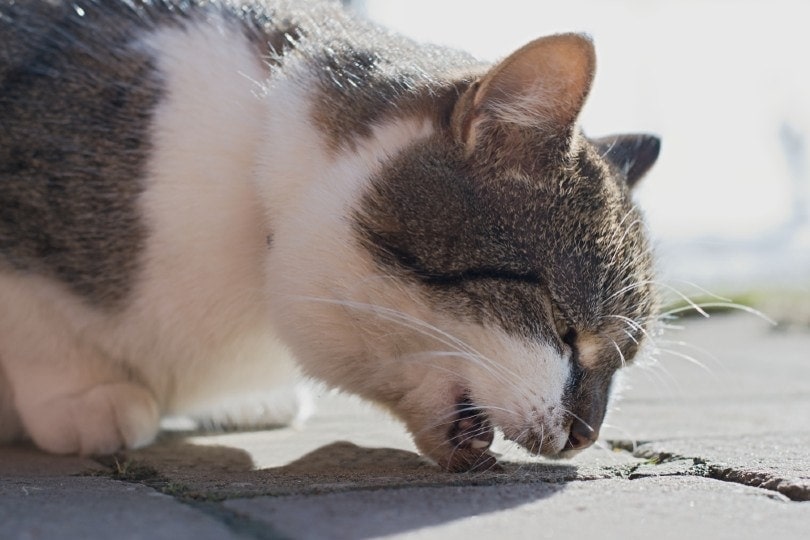
10. Panting or Breathing Weirdly
Panting is not a normal behavior in cats. While your feline friend may briefly pant after intense physical activity, it can also be a sign of stress, serious heart or lung conditions, or overheating. Contact your veterinarian if you see this happening, to be on the safe side.
When Should I Go to the Vet?
Only you will know when your cat is behaving “normally,” so be sure to always pay attention to their behavior.
That said, some “weird” behaviors are more concerning than others. Inability to urinate or defecate, persistent vomiting, difficulty breathing, panting, unresponsiveness, or seizures are just some weird behaviors that require immediate veterinary attention.
Bottom Line
Most weird behavior of cats can be attributed to illnesses or behavioral reactions to a change in their environment. It may be hard to pinpoint what is the problem because many of these issues have similar signs.
So, what should you do? It depends on the situation. If your cat is showing clear signs of pain or distress, a trip to the vet is in order.
In other situations, monitoring your cat’s behavior for a few days could suffice. That said, cats don’t always show their pain or distress, so it’s never a bad idea to give a call to your vet if you have any concerns.
See Also:
- My Cat Isn’t Eating Much but Acting Normal: 11 Vet-Reviewed Reasons
- Why Does My Cat Act Like a Dog? 5 Possible Reasons & Common Pup-Like Breeds
Featured Image Credit: Nils Jacobi, Shutterstock



